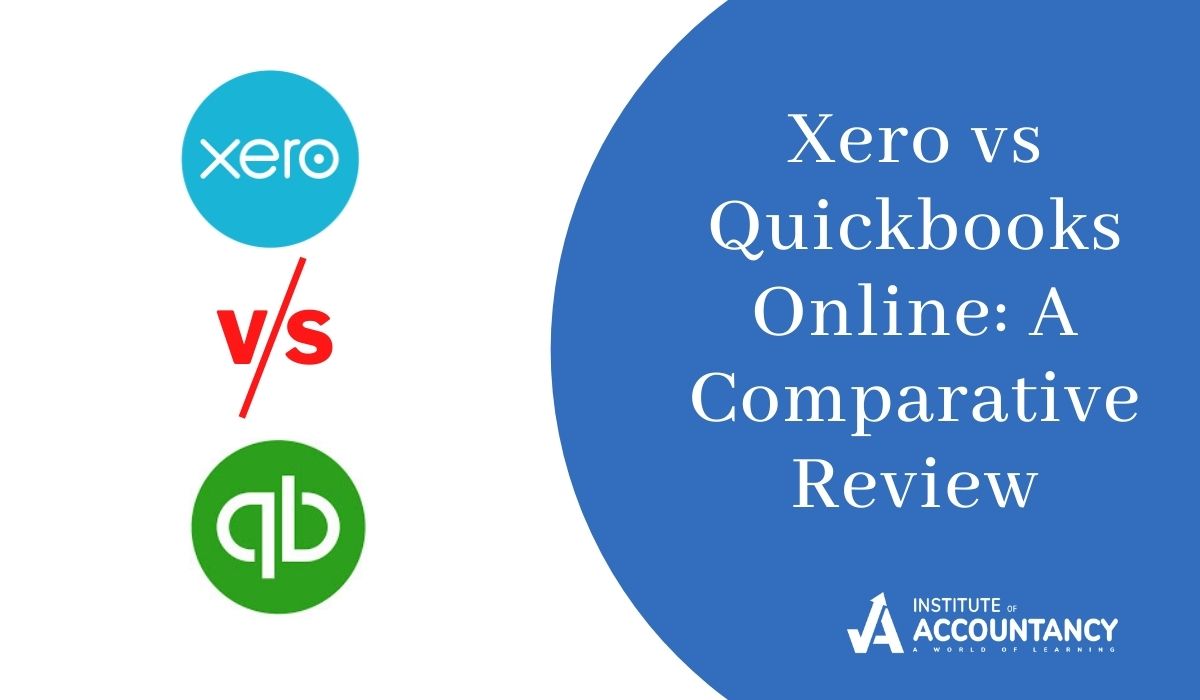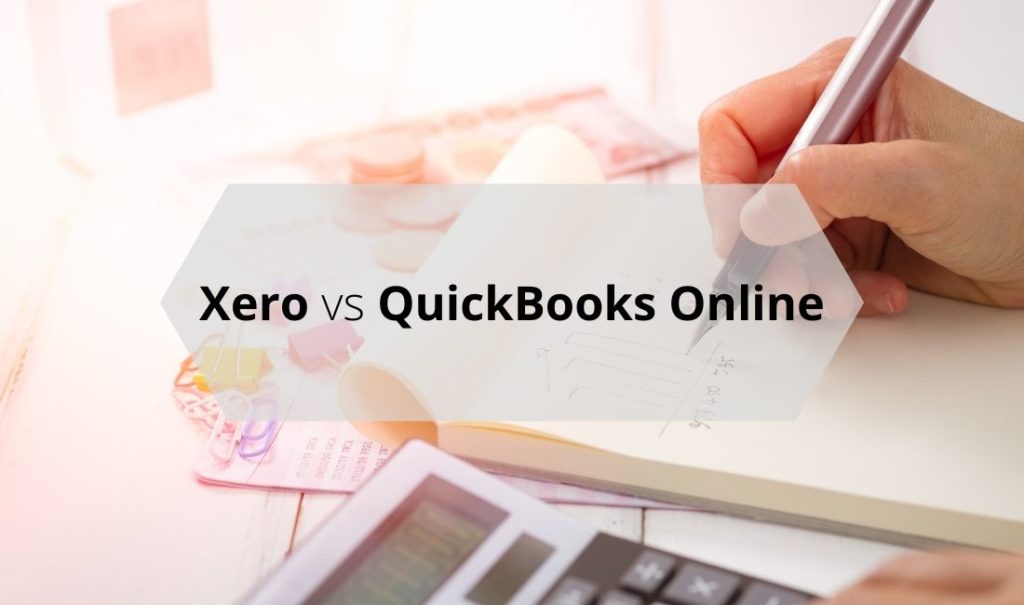
There are so many names in the accounts’ software market right now. Zoho Books, FreshBooks, NetSuite, ERP to only name the popular ones. However, two softwares have become the industry standard in every regard. They are Xero and QuickBooks Online. In this blog we’ve gathered Xero vs Quickbooks Online: a comparative review to see which is the better accounts software.
You know, modern businesses depend vastly on digital infrastructure. Whether it be for marketing, management or accounts. To specifically talk about accounting, there aren’t many businesses that still rely on the primitive paper ledgers.
Moreover, the ledger has been replaced with the accounting software application. Therefore, the transition has not only made accounts and billing accessible for administrators but has also made the work of accountants simpler.
While we’ll focus on specific criteria such as costs, user experience and scalability, we’ve also factored a lot more. Each of these two software has perks and drawbacks in different criteria, so it’s safe to say neither is a one-size-fits-all solution. Now, let’s check out the general specifications of Xero and QuickBooks Online before we get to comparing them.
Basics of Accounts software
Accounts software provides various accounting services using different modules. From Wikipedia, the following services should be present in an accounts’ software for it to be fully functional.
1. General ledger
2. Accounts payable
3. Accounts receivable
4. Billing
5. Sales order
6. Purchase order
7. Stock/inventory
8. Financial close management
9. Bookkeeping
Xero Accounting software
Xero accounting software is the product of a software company based in New Zealand of the same name. The company founded in 2006 has grown to serve more than one million customers in 2018. Xero ushered in the era of mobile accounting in 2011 with it’s touch-based mobile (iOS) application. Source: Wikipedia.
QuickBooks Online
QuickBooks is marketed by Inuit. While the core modules of QuickBooks were based on the “In-house Accountant” software owned by Inuit, the software uses separate code architecture for Microsoft and Apple devices. In September 2019, Inuit announced the latest version called QuickBooks 2020. QuickBooks provides services as a desktop application while the cloud based storage is called QuickBooks Online. Source: Wikipedia
Xero vs QuickBooks Online: A Comparative Review
While each of the software provides standard features with some core differences as well. First we’ll cover the similar features and then get on with the comparisons. Here are the common features you will find both in Xero and QuickBooks Online.

Accountants need specific training for either Xero accounting Software or QuickBooks Online to work efficiently. You will be good at –
1. Online accounts
2. Payable / Receivable accounting
3. Banking synchronization
4. Invoicing
5. Payroll
6. Financial reporting
7. Quick view of cash flow
8. Bank reconciliation
9. Multi-currency compatibility
10. Document sharing
11. Billing management
12. Countless integrations and add-ons
13. Display outstanding balances
14. Mobile friendly applications
15. Free Trials (no credit card required)
Aside from these core services there are other perks that each of the software provide. These perks make them compatible for businesses of varying size and scale. Although not all of them are included in the starter packages.
Xero vs QuickBooks Online will give you the clear comparative review for you. Let’s begin.
1. Cost
Xero: three pricing tiers
Xero’s starter plan (Early) costs £10/month, with a limited set of features. This allows sending only 5 invoices and quotes and bills, and reconciling 2 bank transactions. For most businesses this isn’t remotely enough in terms of accounting demands. If you’re looking to learn more about Xero Accounting Software we’ve got a course on it just for you.
Their mid-price plan (Growing) is well-equipped to handle small businesses. The costing for this package is £24/month. For the full feature set, you’ll have to pay £30/month under their established service package.
QuickBooks Online: Accessible price points
QuickBooks has priced their basic plan (Simple Start) at £12/month. This comes with all the basics of tracking income and expenses, capturing and organizing receipts, invoicing and accepting payments which are significantly more than Xero’s cheapest plan. The main limitation of the Simple Start plan is that it only allows access for one user at a time. Time tracking and billing is also not offered with this package.
Most mid-range businesses prefer the Essentials plan at £20/month, with all the above features and access for up-to 3 users. The state-of-the-art features come with the top plan: Plus for £30/month. It includes services such as track inventory, managing up to 1099 contractors, and QuickBooks Online newest feature, real-time tracking of project profitability.
Comparison
If you need to track income, expenses, invoices and time, we’d recommend you’ll likely be paying £20/month for QuickBooks. However, the top plans (£30/month), you’ll get grossly similar functionality from both providers.
2. Overall features: Invoicing, Inventory, Payments, Expenses and Bills
With either accounting solution you’ll get dedicated features for invoices and quotes, fast bank reconciling, sending purchase orders while also managing inventory, bills and expenses.
Xero
Xero is a life-saver for small and medium-sized businesses that need a user-friendly solution for bookkeeping. It’s undoubtedly the most easy-to-use accounting system. On the downside, for complex features like full stock management or control, you’ll have to purchase third-party integrations.
QuickBooks Online
Considering Inventory management functionality, QuickBooks Online has a clear edge along with a comprehensive point-of-sale solution. QuickBooks Online makes it easy to connect your financial accounts – a fundamental aspect of bookkeeping. Xero, lags behind in secure bank feed connection and is slightly less seamless.
Comparison
QuickBooks Online is the more comprehensive solution considering all the features.
3. Integrations
To efficiently reap the benefits of automation you need to integrate your accounting software with the following systems, i.e.
- CRM system
- E-Commerce
- Time tracking tool
- Reporting tools
- Inventory management
- Point-of-sale systems
- Debtor tracking, and
- Email marketing tool
Xero and QuickBooks both feature similar integrations in their respective marketplaces. All you need to do is find compatible integrations according to your business needs.
Comparison
Considering integration compatibility it’s a tie between Xero and QuickBooks Online.
4. Reporting & dashboards
Pulling reports based on date range, such as monthly P&L and balance sheets is an essential feature. QuickBooks Online is a walk in the park compared to Xero in this regard. However, Xero provides a better range of customizations for reports.
One of Xero’s definite plu-sides in this regard is the “Business Performance dashboard” which highlights essential metrics of your business. For example, debt ratio and gross profit percentage are displayed in an easy-to-understand layout.
Comparison
Xero wins this round for better designed reports.
5. User experience & user interface
Xero: makes accounting much more enjoyable
Newer businesses seem to prefer Xero over QuickBooks Online for the simple reason that Xero looks better. The user interface is undoubtedly more polished and user-friendly. It’s not a surprise that beginners enjoy using Xero for this reason.
QuickBooks Online: less trendy, still easy to use
QuickBook Online was lagging behind for its antique user interface in the early 2010s. Since then competitors (Xero for the most part) have pushed QuickBooks Online to emphasize more on user-experience. To be honest, they still have a lot more to provide.
Comparison
Xero is a clear winner considering user experience.
6. Scaling Xero vs. QuickBooks Online
Xero
According to multiple online reviews Xero’s functionality is affected dramatically by your business size. Xero claims that their software performs under the soft limits for transaction volume at around 2000 sales, 2000 purchases and 4000 bank lines each month. If your business is below these soft numbers Xero can be considered a good fit.
QuickBooks Online
For larger ventures or one that’s growth rate is immense, it’s better to look into Intuit’s wider software suite, mainly the Enterprise Solutions package. QuickBooks Online Enterprise is specifically designed to handle the needs of large businesses with high growth rates.
The Enterprise Solutions claims to have 6-times the capacity of other QuickBooks solutions. It is capable of managing up to 30 users and supports up to 1 million list items including the inventory and management options.
Comparison
QuickBooks Online is for larger businesses or those under rapid expansion. Xero is more for small to mid-range enterprises.
Ending Notes
With this comparative review we hope you’ve got a clear idea on Xero vs Quickbooks Online. Now, you know the process how you can select a suitable accounting solution for your business. However, if you think it’s still not enough information to make a solid decision, then you could visit our training courses and find out which one suits your accountants better.


0 responses on "Xero vs Quickbooks Online: A Comparative Review"